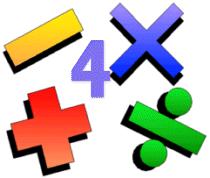Contribute
| For The Mathematically Inclined |
Anil Saigal
10/22/2015
Problem 1
An urn contains a number of colored balls, with equal numbers of each color. Adding 20 balls of a new color to the urn would not change the probability of drawing (without replacement) two balls of the same color.How many balls are in the urn?
Problem 2
Find the smallest positive integer such that when its last digit is moved to the start of the number (example: 1234 becomes 4123) the resulting number is larger than and is an integral multiple of the original number. Numbers are written in standard decimal notation, with no leading zeroes.
----------------------------------------------------------------------------------------------------------
Please send your solutions to mr.asaigal@gmail.com.
Use Problem Solutions M-102215 as the subject line. Please include your full name in the text of the main message. Everyone with the right answer will be acknowledged in the next issue of Lokvani.
Please do not post your solution in Post Comments. No credit will be given for solutions not sent to anil@lokvani.com.
If you need clarification on any problem, please contact anil@lokvani.com.
--------------------------------------------------------------------------------------------------------
Problem #1
How can you add eight 8's to get the number 1,000?
8 + 8 + 8 + 88 + 888.
Problem #2
1.
You may also access this article through our web-site http://www.lokvani.com/
